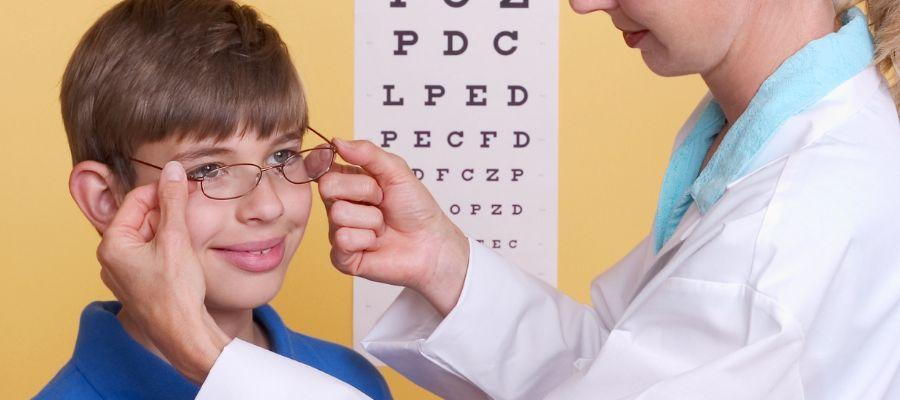
How Can I Prepare For My Eye Exam?
You're about to embark on an important journey to ensure the health of your eyes with an upcoming exam, and you may be wondering just how to prepare. Look no further because this article is here to guide you. Catered to clients of the renowned 50 Dollar Eye Guy clinics in Pensacola, Florida, this article offers key insights into how to best ready yourself for an eye exam. With helpful tips and practical advice from the friendly and professional Dr. Joseph Tegenkamp, you can ensure your eye exam preparation is thorough for optimal results. Let's get your vision into top shape together!
Understanding the Importance of Eye Exams
Knowing the Purpose of Eye Exams
Eyes aren't just the windows to your soul; they're also critical for your everyday interaction with the world. Regular eye exams are crucial for maintaining healthy vision and can detect varying health conditions early. The purpose of an eye exam goes beyond just checking your eyesight. It can assess your general ocular health, screen for conditions such as eye diseases or color blindness, and even pinpoint systemic issues like diabetes or hypertension.
Realizing the Effects of Neglecting Eye Exams
Skipping your eye exams might seem harmless, but it can lead to significant repercussions. It could delay the detection of serious eye conditions like glaucoma or macular degeneration. Moreover, regular eye exams can detect changes in your vision, which might mean that your eyeglass or contact lens prescription needs to be updated.
Understanding When to Schedule an Eye Exam
How often you should have an eye exam varies based on your age, health, and risk of developing eye problems. As a rule of thumb, adults between the age of 18 and 60 should have an exam at least once every two years. If you're over 60 or have a higher risk of eye problems, you should have an eye exam at least once a year.
Choosing the Right Optometrist
The Importance of Choosing the Right Optometrist
Just like choosing a good general doctor, picking the right optometrist is also important. A good optometrist doesn't just ensure your specs are updated; they also monitor your eye health and can detect early signs of conditions that could impact your vision.
Finding Recommendations and Reviews
To find a reliable optometrist, consider asking for recommendations from friends, family, or your general practitioner. Reviews on internet platforms can also be a great source of information.
Introducing Dr. Joseph Tegenkamp and the 50 Dollar Eye Guy
Dr. Joseph Tegenkamp of the '50 Dollar Eye Guy' in Pensacola, Florida, is a highly recommended optometrist. Known for his friendly and professional approach, Dr. Tegenkamp provides comprehensive eye exams, ensures high-quality care, and offers a wide range of fashionable eyewear. He spends the necessary time with each patient creating a comfortable exam experience.
Confirming Your Appointment
How to Make an Appointment
Booking an appointment can usually be done over the phone, through a clinic's online portal, or in person. When booking, provide any necessary details like your name, contact information, and the purpose of your visit.
When to Confirm Your Appointment
Most clinics send a confirmation message or email with the date and time of the appointment as soon as you book. It's wise to confirm your appointment a day or two beforehand to ensure there are no scheduling mix-ups.
Selecting the Perfect Time and Date for Your Eye Exam
When scheduling your eye exam, choose a time and date that best suits your schedule and allows you ample relaxation time prior.
Documenting Your Medical History
Understanding Why Your Medical History is Important
Your medical history guides your optometrist in understanding your eye health better. It may influence which tests your optometrist conducts and can help them pinpoint the cause of any vision problems more accurately.
How to Gather Sufficient Medical Records
Ensure you have a record of past eye examinations, treatments, surgeries, and any prescription medications. Also note if there's a history of eye diseases in your family as some conditions are hereditary.
Deciding What Medical History to Disclose
While all medical information is useful, some details are crucial for an eye exam. Specific systemic conditions like diabetes, autoimmune disorders, high blood pressure, and thyroid problems can affect your eye health, and therefore should definitely be disclosed.
Recognizing Common Eye Problems
Different Common Eye Conditions
Some common eye conditions include refractive errors like myopia (nearsightedness) and hyperopia (farsightedness), astigmatism, presbyopia (age-related vision changes), conjunctivitis (pink eye), dry eye, cataracts, glaucoma, retinal disorders, and macular degeneration.
Understanding How Eye Problems Can Affect Vision
Each eye condition can affect your vision differently, from blurriness, seeing spots or floaters, to even loss of vision. A routine eye exam can pick up these conditions early, before they affect your quality of life.
Knowing When to Seek Professional Help
If you experience anything abnormal with your vision, such as sudden changes in clarity, loss of vision, double vision, persistent pain or discomfort, flashing lights, or an increase in the number of floaters or spots, it's time to see an optometrist.
Preparing a List of Questions for the Optometrist
How to Frame the Questions
Prepare a list of questions you may have about your eye health, vision, or any symptoms you've been experiencing. Be clear and concise in your queries.
Understanding Why Having Questions Ready is Important
Having your questions ready helps make the most out of your visit. It helps you understand the state of your eye health better and allows you to participate actively in maintaining your vision health.
Examples of Important Questions to Ask Your Optometrist
You might want to ask about the health of your eyes, the meaning of any terms the optometrist uses, recommendations for vision correction options, steps for eye health maintenance, and symptoms to watch for.
Why You Should Avoid Eye Strain Before the Exam
The Effects of Eye Strain on Your Vision
Excessive eye strain can temporarily impact your vision and resultant exam results. It could lead to blurry vision, trouble focusing, increased sensitivity to light, and even headaches.
Tips on How to Avoid Straining Your Eyes Before the Exam
Try to avoid extensive screen time, reading, or any activity that closely focuses your eyes for a long period. Also, get a good night's sleep before your exam.
Understanding the Link Between Eye Strain and Vision Health
Continuous strain on your eyes can cause vision health issues over time, like dry eye syndrome or digital eye strain.
Understanding the Eye Exam Process
Different Stages of the Eye Exam
Eye exams start with a consultation about your health history. Next, preliminary tests are conducted to determine eye pressure, eye muscle movements, and visual field. Further tests include the cover test, retinoscopy, refraction, and an exam of the front of your eye and retina.
What to Expect During the Eye Exam
During the eye exam, your optometrist will conduct several tests to examine your eye health and measure your vision. Generally, the exam is comfortable and painless, and your optometrist will guide you through each step.
How to Respond During the Eye Exam
When responding to the vision tests like refraction, try to be as accurate as possible. Remember, there's no need to rush, and there are no right or wrong answers.
Knowing Your Vision Insurance Coverage
Importance of Understanding Your Insurance Plan
Understanding your insurance coverage can help estimate the cost of your eye exam and any treatments or eyewear required. It helps you avoid unexpected costs and ensures you optimize the benefits offered by your plan.
Contacting Your Insurance Provider for Clarity
If you're unsure about what your plan covers, reach out to your insurance provider. They can provide detail about your coverage and any necessary criteria or limitations.
Figuring Out Out-of-pocket Costs for the Eye Exam
Remember to consider potential out-of-pocket costs, such as copays or fees not covered by your insurance.
Post Exam Measures
Interpreting Results Post Eye Exam
After the exam, your optometrist will explain your results and discuss any necessary treatment plans or lifestyle changes. Feel free to ask questions if anything is unclear.
How to Take Care of Your Eyes After the Exam
Post the exam, protect your eyes from intense light as your pupils might still be dilated. Maintain good eye hygiene and adhere to your optometrist's recommendations.
Following up on the Eye Exam
Ensure to schedule your next eye exam, as consistent checks are necessary for preserving your vision's health. If any symptoms arise or you note changes in your vision, schedule an appointment immediately.




